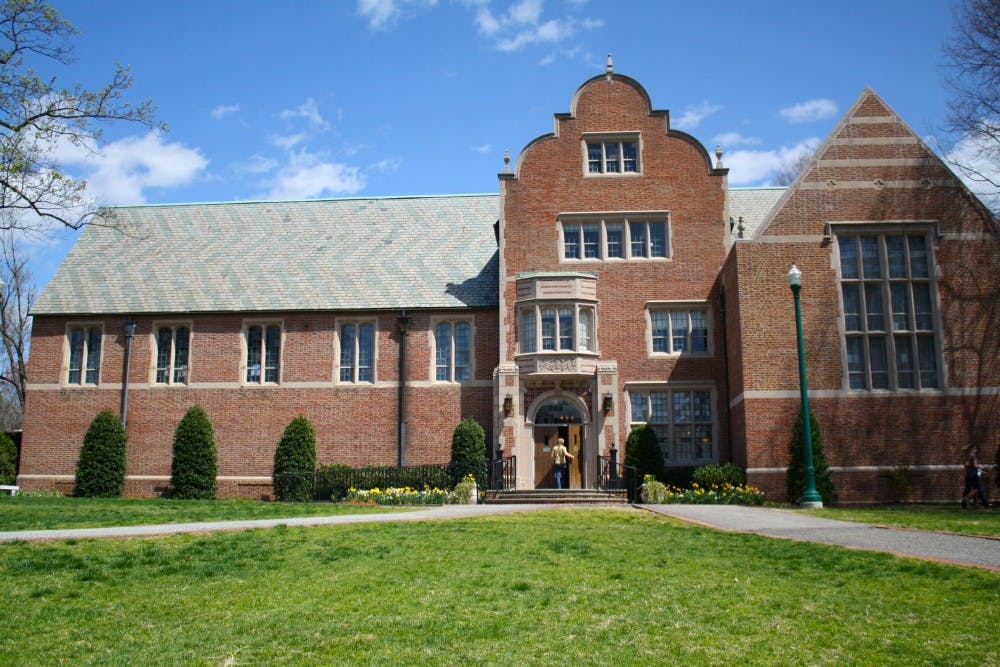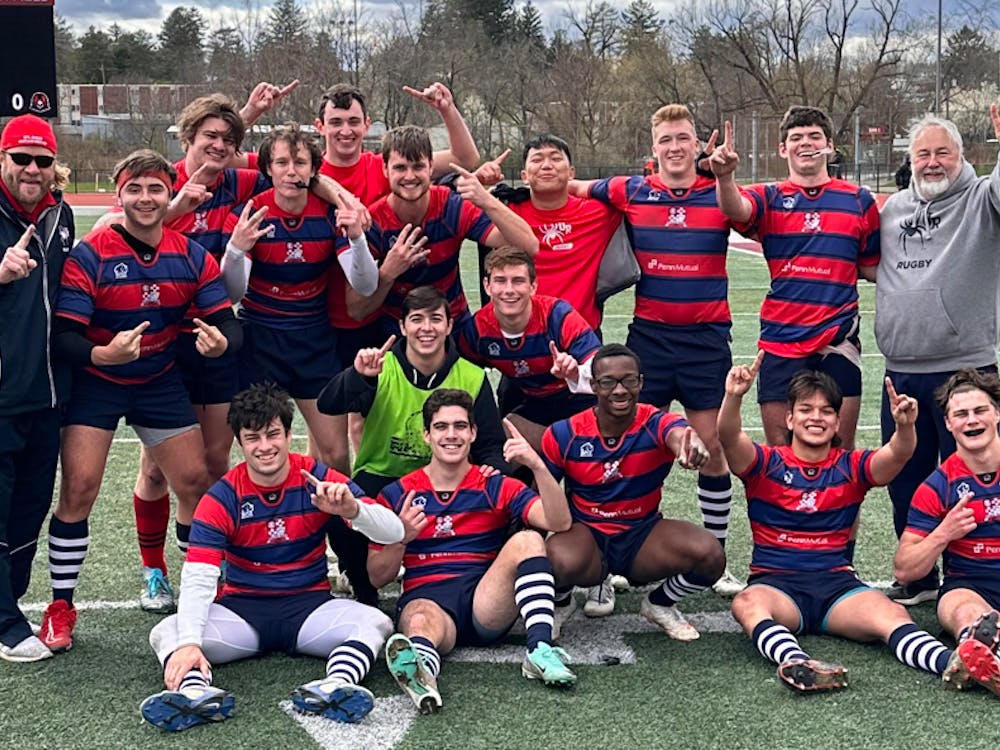Jessie Fillerup, an assistant professor of music wholeheartedly dedicated to her work, has a passion for teaching that shines through her classes and various publications on pedagogy alike. But lately she faces a stress that is pulling her away from her office at the top of Sarah Brunet Hall’s skinny staircase.
Fillerup is the mother of 3-year-old twins. The University of Richmond does not provide any form of childcare for its employees, and the financial and emotional pressure of finding alternatives has become a major distraction for Fillerup.
Full-time day care four days per week costs Fillerup $1,500 every month for her two toddlers.
“It’s like paying for a second house,” Fillerup said. “It’s the cost of a mortgage.”
She is not alone in this struggle as both professor and parent. The lack of on-site child care has been affecting mothers and fathers here for decades.
Lucretia McCulley, Boatwright Library's head of scholarly communications, first started talking about the issue in 1989.
When the provost appointed a committee on the Status of Women and Gender Issues, McCulley was on a subgroup for benefits. McCulley’s committee issued a report with the recommendation that the school begin to provide on-site child care for its employees. The report cited a survey that showed “a high proportion of University of Richmond men and women want and would use on-site child care.” No change came from the recommendation.
In 1991, a new child care committee was formed, and issued the same request. Again, no change was made.
Between 1992 and 2006, six student groups investigated the issue. In 2002, day care was part of the university’s strategic plan. Still, nothing.
In 2007, history professor Sydney Watts, mother of a then 4-year-old son, joined a new benefits subcommittee of the University Faculty Council that echoed all of these reports: An on-site child care facility would benefit a large group of University employees.
That report was re-visited in 2009, and this time, the prospects looked hopeful. Both student government associations endorsed the recommendation. The vice president for budget even seemed welcoming to the suggestion.
“There was awareness everywhere," Watts said. "It was unanimous."
Enjoy what you're reading?
Signup for our newsletter
Then, late in the year, the stock market crashed.
“Everything stopped,” said Watts, “we thought we were going to get it, and there was this very angry moment when the president’s chief of staff, his assistant, came to a faculty meeting and told us it wasn’t going to happen.”
Watts said that although the administration had declared a day care center too expensive during the recession, the school had exploded with construction.
The Robins Stadium and the Carole Weinstein International Center were both completed in 2010. Queally Hall, in the Robins School of Business, opened its doors in 2011.
Fillerup, McCulley and Watts all said they had given up on the idea of ever seeing a day care on university property.
“It’s not happening. It’s just not happening, and that’s been made clear to me and to others who have expressed interest and concern about the issue,” Fillerup said.
Carl Sorensen, Senior Associate Vice President of Human Resources, said that his department had considered the issue, but ultimately had decided to focus its support in other areas.
“When it comes to benefits, all kinds of benefits,” Sorensen said, “we’re really committed strategically to our students’ education and maintaining the cost of tuition as low as possible.”
Sorensen added that the University of Richmond provides college tuition support and reduction for children of employees. He also cited the limited number of faculty with small children, saying the expense of opening a child care center does not match the goal of maximizing the number of employees the university can support.
Nearby institutions, such as Virginia Commonwealth University, the University of Virginia, and College of William and Mary, provide day care for their employees, according to the universities' websites. James Madison University does not guarantee day care, but provides parents with resources to find the best options, according to its website. This alternative has also been suggested at UR.
McCulley remembered including those comparisons in the various reports she had submitted over the years, but today she still watches parents scramble to pick up their kids.
“If we have a faculty meeting late in the afternoon, many of them are at four o’clock," McCulley said. "When five o’clock happens, you see an exodus of people leaving because they have to go pick up their children."
McCulley said she felt as if that distraction hindered her ability to participate on campus as the role model she was hired to be.
“There’s a sort of constant concern about when I need to pick my children up, what they’re doing,” Fillerup said, “and then there are the occasional instances when I have to miss class or am late to a meeting. There’s no backup.”
A survey in the report from 2009 showed that 46 percent of UR faculty members believed the stress of child care was negatively affecting their teaching and research abilities. 74 percent had missed at least one day of work due to a child care breakdown, and 23 percent had missed over five.
“The university is talking a great deal about equity these days,” Fillerup said. “And one way to deal with the inequities between the lives of fathers on campus versus the lives of mothers would be to provide child care.”
McCulley agreed, emphasizing the ways that day care provision would also benefit fathers.
“I feel that it’s difficult for both women and men, because I feel like there are many men who are very involved as fathers and take the responsibility very seriously, so I think it’s detrimental across the board in terms of gender equity,” she said.
Fillerup accepted a fellowship in Denmark and recently moved there with her family. She will stay for two years, meaning that her twins will spend the next two years of their lives before public school in a country with heavily subsidized child care.
“I’ve ended up solving my child care problem by leaving the country,” Fillerup said with a chuckle.
Contact features writer Zoe Phillips at zoe.phillips@richmond.edu.
Support independent student media
You can make a tax-deductible donation by clicking the button below, which takes you to our secure PayPal account. The page is set up to receive contributions in whatever amount you designate. We look forward to using the money we raise to further our mission of providing honest and accurate information to students, faculty, staff, alumni and others in the general public.
Donate Now



